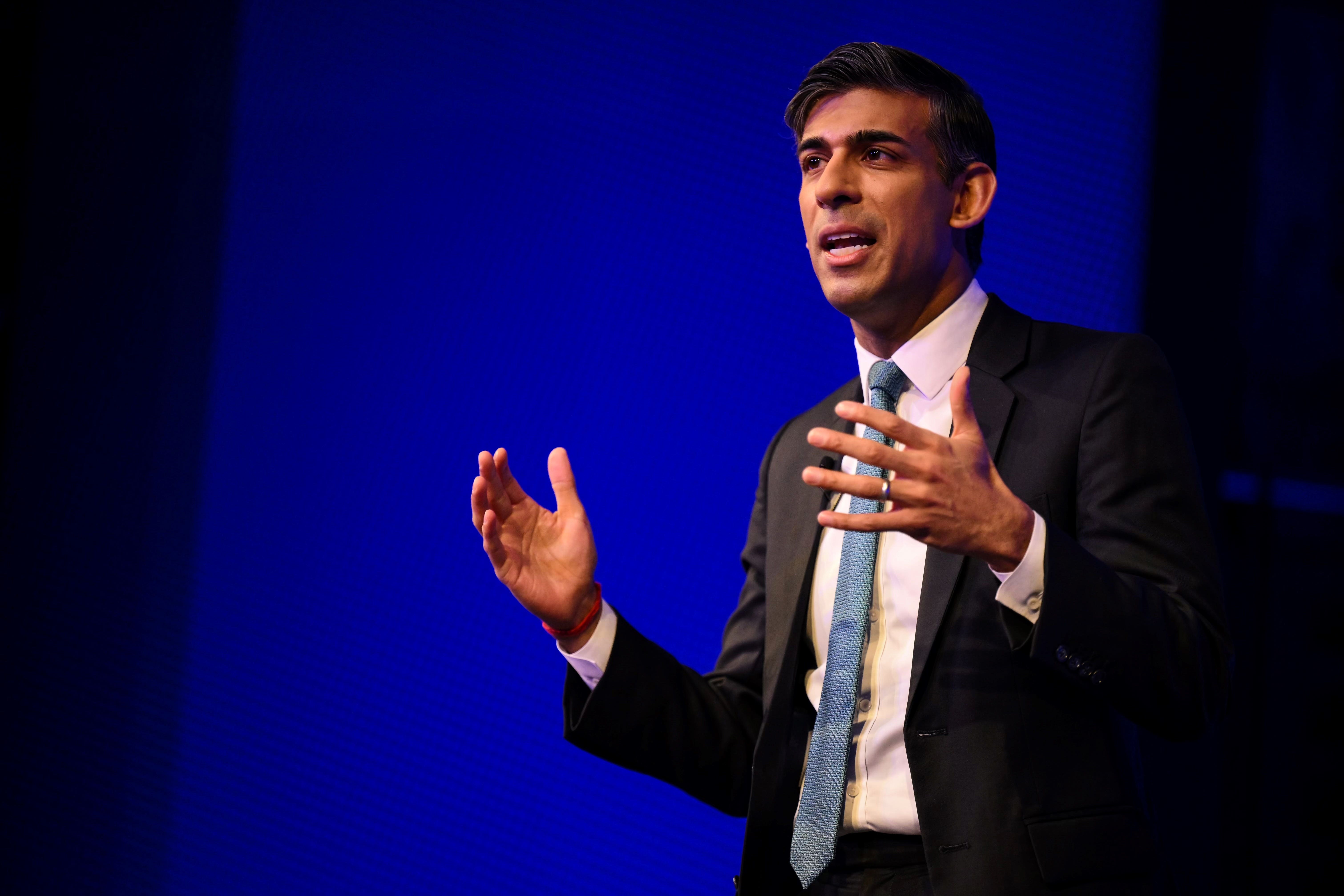Rishi Sunak’s post-Brexit EU border deal could be the first of many
Brexit still has many other rough edges to be smoothed, says Sean O’Grady


Rishi Sunak is said to be eyeing up a new deal with the EU to ease the post-Brexit woes of Britons travelling to the bloc after recent chaos at the border. The prime minister reportedly wants an agreement that would let UK citizens use EU e-gates for passport checks to make life easier for British travellers and for commerce. This has led to much speculation about a warmer, closer relationship with the EU.
What’s the issue?
Given the queues that now form at Dover at peak times, ministers fear even more time-consuming checks due to be in place in 2024 will make matters worse. Airport passage could also be much slower if UK passengers aren’t able to use e-gate facilities at some European air terminals. The new rules would require the facial scanning of passport holders, for example, as well as fingerprints on file and a wide range of biographical information – and passports will still need to be scanned and stamped. Aside from the economic damage and waste of time, the prospect of more delays would be a vote loser and further undermine the Brexit project.
Sunak reportedly wants an agreement that would let UK citizens enter and exit the EU more like the way they used to when the UK was a member state, before the post-Brexit “third-country” status. Informal diplomatic approaches have been made.
In the words of Sunak’s official spokesperson: “We are working closely with the European Commission and member states to understand the impacts of the introduction of the entry-exit system for British citizens, and our priority is always to minimise unnecessary delays for passengers.”
Why is the prime minister doing this now?
Because Brexit needs constant improvement because the voters find waiting at Dover and airports frustrating and tend to blame ministers and Brexit for the problems. Pictures of huge traffic jams and long queues of weary passengers add to a sense that “nothing works”, adding to the sense of national malaise and disappointment about Brexit. A successful Anglo-French summit, the conclusion of the Windsor Framework and a palpable thaw in personal relations after the frostiness of the Johnson-Truss years presents an opportunity to make further progress.
What are his chances of success?
Modest. It’s difficult for the EU to risk the structural integrity of the single market and, ironically, that includes British visitors crossing the English Channel by sea or air without proper documentation. The EU might request some reciprocal arrangements, though this might mean the UK loosening its control on its borders, which was one of the aims of Brexit. The EU could also ask the UK to pay for any additional work needed to ease travel, such as more e-gates at the ports.
Will there be more mini-deals like this?
Sunak thinks so. Such piecemeal practical ameliorations were on hold during the long stand-off over the Northern Ireland protocol. Now that has gone, and relations are better, Britain can try again to join the Horizon programme, for example, as intended by the original Brexit deal. Universities have lobbied the government strongly on Horizon, and after two years of being excluded from European science and academic projects, talks are once again live. This encompasses the roughly £100bn Horizon Europe funding programme; the Copernicus Earth observation satellite system; and Euratom’s nuclear energy research and innovation scheme. However, and characteristically, the UK is asking for special terms and a “discount” so that the British won’t have to pay for the two years’ worth of Horizon fees now in arrears skipped during the protocol row. The Channel migrants issue might be the subject of another mini-deal.
Are any new barriers going up?
Yes. The border checks and controls for cargo entering the UK from the EU that were envisaged post-Brexit should have been implemented in 2021 onwards, but implementation has been repeatedly postponed, simply because the infrastructure wasn’t ready and through fear of yet more delays, this time in the other direction at the Channel ports. A fewer weeks ago the government published the following timetable:
- 31 October: introduction of health certification on imports of medium-risk animal products, plants, plant products and high-risk food (and feed) of non-animal origin from the EU
- 31 January 2024: introduction of documentary and risk-based identity and physical checks on medium-risk animal products, plants, plant products and high-risk food (and feed) of non-animal origin from the EU
- 31 October 2024: safety and security declarations for EU imports
Under the Windsor Agreement, Northern Ireland businesses “will retain unfettered access to their most important market in Great Britain, whether moving goods directly or indirectly through Irish ports”, the government says.
Is Sunak trying to reverse Brexit?
No, especially as he was an original Leaver and still appears to believe in it. He is pursuing a strategy of incremental improvements to the Brexit deal, smoothing off its roughest edges where they affect consumers, passengers and businesses. Even if he wanted to reverse Brexit, his party wouldn’t let him.
Isn’t this like Labour’s policy?
Indeed. “Making Brexit work” is now the consensus. There has been a striking convergence in policy since Sunak became prime minister and Keir Starmer decided to rule out trying to rejoin the EU or its single market or customs union. The practical differences between the two parties’ leaderships on Brexit itself are minimal. However, both Sunak and Starmer’s parties harbour significant factions who’d prefer a different approach. The Liberal Democrats and SNP are much more enthusiastic about an early return to EU membership.
Subscribe to Independent Premium to bookmark this article
Want to bookmark your favourite articles and stories to read or reference later? Start your Independent Premium subscription today.






Join our commenting forum
Join thought-provoking conversations, follow other Independent readers and see their replies
Comments